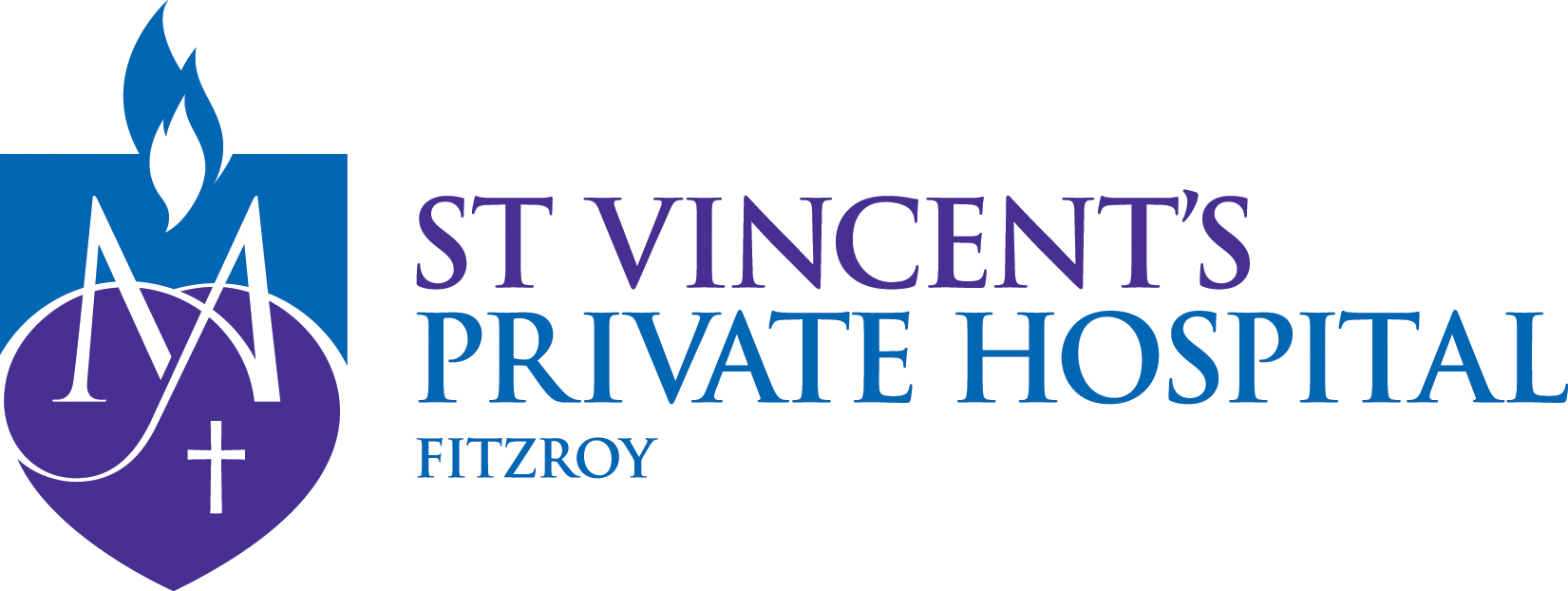
Fitzroy Maternity
Your stay
- Home
- Services
- Maternity (Obstetrics)
- Fitzroy
- Your stay
Your stay
Experience exceptional care during pregnancy, labour, birth and getting to know your baby with our family-focussed approach.
Our maternity staff know that having a baby is one of the most exciting times of your life and we pride ourselves on providing supportive, high quality care before, during and after the birth of your baby. We have a long and proud tradition in maternity services with a focus on comprehensive and personalised care.
St Vincent’s Private Hospital, Fitzroy is an integrated collaborative team of obstetricians, midwives, maternity social workers and breastfeeding experts who will guide in the planning and development of your pregnancy, delivery and care of your baby.

Prior to your stay
After your booking has been confirmed, we will be in touch by email to discuss the details of your stay.
During your stay
What to expect during your stay with us, through labour and birth and caring for your baby.
Labour and birth
We have recently refurbished our birth suites so that they are now more comfortable, and spacious. Our experienced midwives will be there to guide and support you through labour and the birth of your baby.
Read moreSpecial care nursery
Some newborn babies need extra care from specially trained staff. St Vincent’s Private Hospital Fitzroy has a dedicated Level 4 Special Care Nursery onsite.
Read moreRoom service
When you choose St Vincent’s Private Hospital, Fitzroy to have your baby, you and your partner can enjoy delicious, freshly-prepared meals from our room service menu.
Read moreRetreat Program at Park Hyatt
The Family Retreat at Melbourne’s Park Hyatt Hotel is a luxurious option for completing your postnatal care with your partner.
Read moreAfter your stay
After your baby is born, we want to ensure you are well prepared and have everything you need before you go home.
Going home
Your obstetrician and midwifery staff will confirm when you and your baby are ready to go home. Expected discharge after 4 nights for uncomplicated births and 5 nights for emergency caesarean births.
Read moreUseful information and contacts
New parents can get help and advice on pregnancy, childbirth, breastfeeding, caring for their family and more from these useful groups and helplines.
Read moreLearn more about having your baby at St Vincent’s Private Hospital, Fitzroy.
Download Now
Your maternity questions answered
Pre-labour can last for days of weeks before true labour begins, so how can you tell when it’s really about to happen? When your contractions are getting closer together, stronger and lasting longer it’s time to think about contacting the hospital.
• For your first baby and if you’re between 38 and 42 weeks pregnant, you can wait until the contractions are 5 minutes apart, or they’re getting too painful to manage.
• For your second or subsequent baby, contact the hospital when they’re around 7 minutes apart.
Don’t wait. Contact the midwives straight away if:
• You have having bleeding that’s like a period, rather than just a ‘show’
• Your baby is preterm (under 37 weeks)
• You’ve had a complicated pregnancy
• You previously had a caesarean
• You’re having more than one baby
• Your baby is presenting as a breech (bottom first)
• You can feel pressure in your bowel with a contraction and you feel like pushing
• You had a very rapid previous labour (2-3 hours)
• You have group B strep and need antibiotics in labour
• You’re really worried or not coping
• You live some distance from the hospital, or traffic is likely to slow you down
In Australia, most babies are delivered by vaginal birth. 30% of Australian births are by caesarean section. Your obstetrician will normally recommend a caesarean if they believe there are likely to be problems or risks associated with a vaginal birth.
Sometimes an emergency caesarean is carried out because of pregnancy complications or if your labour doesn't proceed as expected.
Labour is hard work and it hurts. Some women manage to cope with the pain without medical help while others are happy to consider pain relief options. For your first birth, you won’t know whether your pain threshold is high or low, so you might want to consider a range of options. Don’t be afraid to ask for help if you’re not coping.
Non-medical pain relief methods include:
• Staying calm and/or meditating
• Learning breathing techniques
• Support from a trusted partner, friend or doula
• Listening to music
• Hot and cold packs
• Massage
• A warm shower or bath
• Staying active
• Hypnosis
• Acupuncture
• Acupressure
• Transcutaneous electrical nerve stimulation (TENS)
Drug treatment
• Nitrous oxide, known as ‘laughing gas’ can take the edge off your contraction pains. You hold the mask and start breathing it in as a contraction begins.
• Pethidine is an opioid analgesic that provides strong pain relief for up to 4 hours.
• Epidural anaesthesia should make you completely numb from the waist down. It requires an injection into your spine. It is also used for caesarean deliveries.
All drug treatments have potential side effects which you should discuss with your obstetrician.
Contact Us

